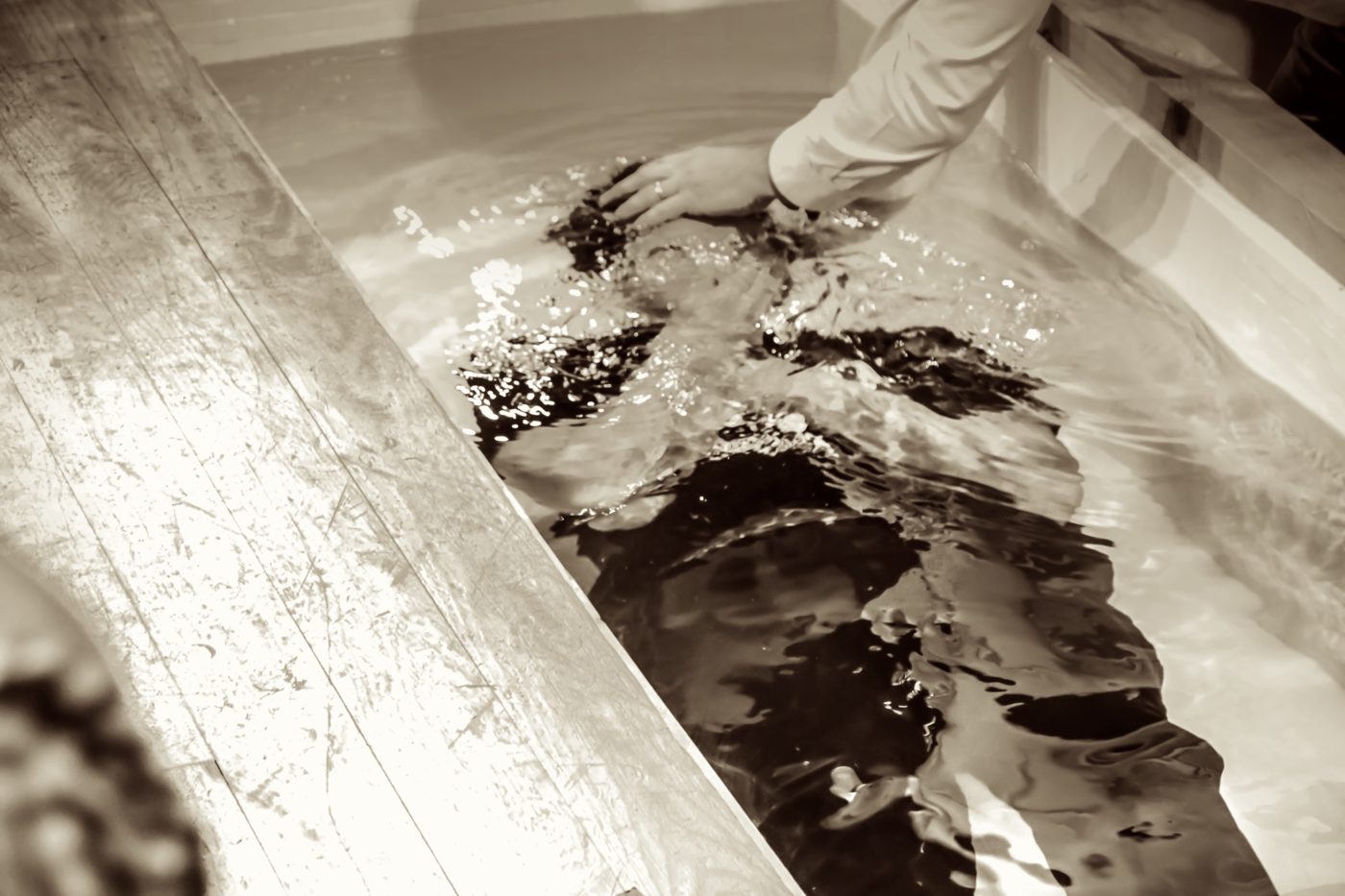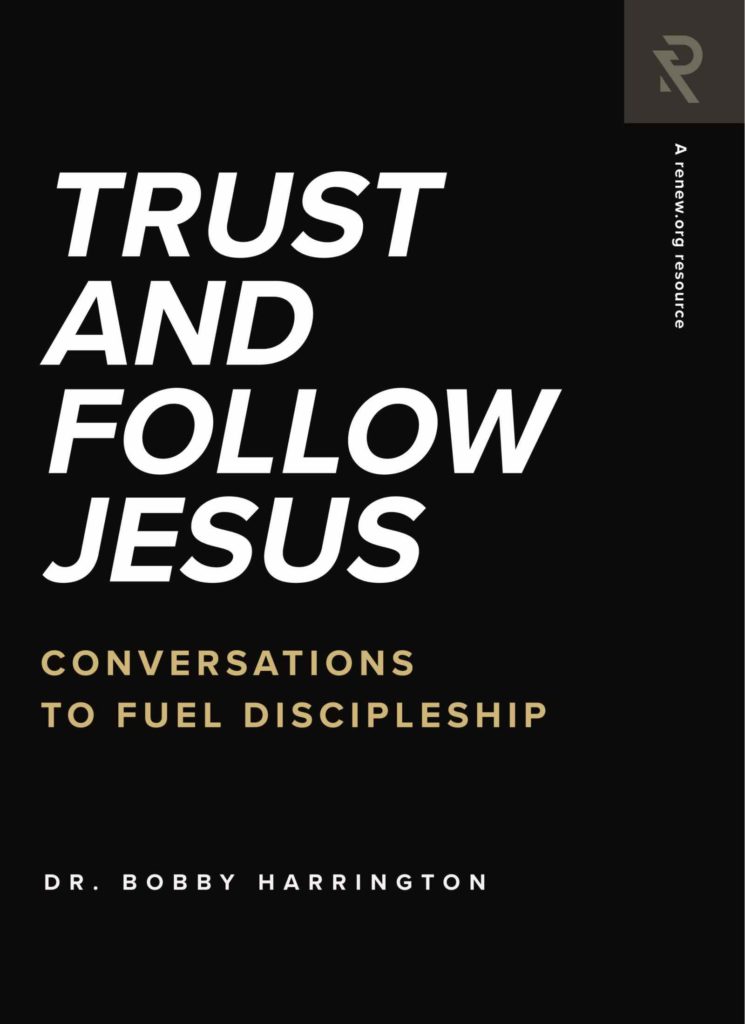
Q&A – 3 Questions We’ve Started Asking at Baptism
*Editor’s Note: Sometimes a church’s expectations for a new believer are fuzzy. Is regular church attendance a good goal, or should we be aiming higher? How should we communicate Jesus’ sober call to deny ourselves and follow him alongside his promise of grace and forgiveness for all who call upon his name? I recently had a conversation with Ben Sobels, co-author with Bill Hull of The Discipleship Gospel, about how he disciples new believers. Particularly, we talked about three commitments he walks new believers through at baptism.
Q: I’ve heard you talk about how, at baptism, you guide the person getting baptized through some public commitments they are making. What are those commitments?
We ask people 3 questions at their baptism. The first 2 are pretty common. They are
- #1 – Do you believe that Jesus is God’s anointed King, the one who was promised through the Scriptures?
- #2 – Do you believe that Jesus died for our sins and rose from the dead?
The third really brings out the call of the gospel:
- #3 – And are you committed to following Jesus no matter the cost, without conditions or excuses for the rest of your life?
If Jesus really is King (question #1) and died and rose for us (question #2), then with anything less than full commitment (question #3), we don’t have a full understanding of the gospel.
Q: With a renewed emphasis on the commitment to follow Jesus fully, what kind of changes have you seen?
A culture of discipleship is building. Asking the third question makes it crystal clear what Jesus is asking us to be and to do.
This focus is also creating discipleship language in our church. People realize they are in this with no conditions or excuses. It’s for the rest of their life. Actually repeating that language out loud is important.
We’re bringing that language into what it means to be a Christian very strongly and very early. We’re making it clear that there is no Christianity without surrender. We’re pushing the King conversation up on the timeline. Jesus wasn’t ever tentative about talking with people strongly, so neither should we be.
Q: What happens when our expectations of Christians are disconnected from Jesus’ call to follow Him? Sounds like a recipe for disillusionment.
The disillusionment across the country is from us wondering, What is the goal? Is the goal to attract a lot of people? Are we calling people to a watered-down gospel? Throughout the course of a year, I would much rather have one person commit to following Jesus no matter the cost than a hundred people who come to church but don’t really care about following Jesus.
The whole issue goes back to asking, What is the gospel? One of the phrases we use here is, “You never graduate from the gospel.” As Robby Gallaty teaches, believing in the gospel isn’t the finish line, but the starting line. Jesus made it clear in Mark 1 that the gospel has to do with bringing in and living under the kingdom of God. We repent, believe, and follow.
New believers want to know what Jesus is calling them to do.
But if we set a low bar early, that becomes their expectation for the whole Christian life. Then they’re cloudy on what they’re being called to. They figure that the call is something like, “Come to church, give money, and share your faith when there’s an opportunity.” No, it’s to deny, take up your cross daily, and follow Him. This is a gospel conversation. And never graduating is critical.
Romans 6 speaks of dying to ourselves, being buried in baptism, and living new life. It’s essentially the same thing as Jesus talked about: denying ourselves, taking up our cross, and following Jesus. Likewise, Ephesians 4 talks about putting off our old self, being renewed in our minds, and putting on the new self. In short, the Christian life that we are committing to at our baptism is the same commitment we make every day we wake up.
Conversion therefore becomes the pattern for discipleship. The call to follow King Jesus is the beginning of–as well as the pattern for–the whole life of discipleship.
The call to follow King Jesus is the beginning of–as well as the pattern for–the whole life of discipleship.
Q: Sounds clarifying.
People are starting to ask the right questions. Although some people say it sounds like works-gospel, we’ve found that most people are able to see how this focus on following Jesus makes sense of Jesus’ strong calls to follow. It’s all part of the same call of the gospel.
In many churches, there’s a lot of cloudiness around the gospel and how grace fits in. If grace means I don’t have to do anything, then why does Jesus command me to do anything at all? But grace isn’t an excuse for disobedience; grace empowers obedience. It’s what enables us to be obedient. So when Peter says in 2 Peter 1:3 that we’ve been given everything we need for life and godliness, is that true? Yes, it’s true because the Holy Spirit, who is the most beautiful expression of God’s grace that there is, fills us and enables us to obey.
We wonder what could possibly be better than walking with Jesus, where He is physically present with us. Yet Jesus Himself said that there is something better, and that is the Holy Spirit indwelling us. The Holy Spirit empowers us for obedience.
The Holy Spirit empowers us for obedience.









